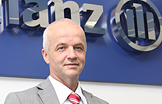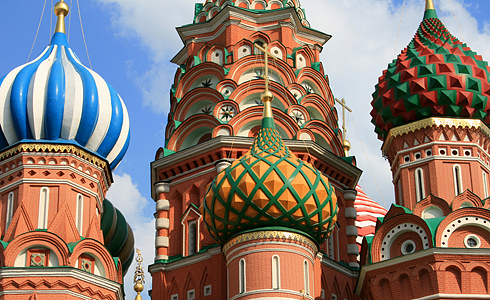Danielsson: Like in many other countries motor insurance is definitely the most purchased. The primary demand is for the motor third-party liability that every driver is required to have by law. People with new cars and a little more money are also interested in accident cover. Apart from this, we're not really seeing a big demand for property insurance like in the rest of Europe.
Why is that?
Danielsson: In my experience there is a difference between "must have" products and "good to have" products. "Must haves" are what the law requires or what the bank requires to get loan to buy a house or apartment. "Good to have" programs like accident and life insurance are still not wide-spread compared to western Europe, but their popularity will grow as the economy develops.
Where else do you see strong demand?
Danielsson: Most insurance revenues in Russia come from the oil industry which is very big in this country. Buyers are looking for cover for oil refineries, transportation and other related large companies. However, if we look at the number of policies, most of them are in motor and health insurance lines.
How does the Russian insurance system differ from other countries in the world?
Danielsson: The Russians prefer to stay special and often get irritated when they hear there is no big difference to other countries. But there really isn't. There is no other sphere which is so well connected with the society as insurance. Health insurance is influenced by the development of the medical system, motor insurance by the growing number of cars. So the Russian insurance market is following European patterns. As the economic standard of living of the average person outside of Moscow approaches western European levels, the insurance market in Russia will become more like what's in, say, Germany or Switzerland.
What are the main advantages and drawbacks of the insurance system in Russia?
Danielsson: The Russian insurance market is not yet as stable as in western Europe. There are still many smaller insurance companies which are not managed properly and run the risk of not being able to pay claims to their customers when they need it. On the other hand, there are many positive features as well.
What are those?
Danielsson: In my opinion, for example, the health insurance system in Russia is quite efficient. It contains different parts. The first is mandatory and guaranteed by the state. The second is health insurance provided by the majority of employers as a social benefit for their employees, allowing them to get medical treatment in better clinics. In addition to that, individual customers can also purchase health insurance policies privately.
There is a theory that every nation has its own risk tolerance. One popular generalization is that people in western Europe prefer to take every detail into account in order to avoid potential risks and problems, while the Russians are more spontaneous. Do you agree with that?
Danielsson: I totally agree that Germans, for example, really like to make sure all risks are controlled and planned for several years ahead, whereas Russians are more focused on today. If you say "long term", in Germany, people interpret that as around five years, while in Russia it would mean no more than five weeks. But that's just Germany.
Also, I'm not so sure it has to do with risk tolerance, at least not entirely, because in Russia people are just as worried about their houses or cars as in Western Europe. But there is an issue of trusting in the long term. People in Russia have gone through far more rapid changes than in many other countries. Therefore perhaps it is more difficult for them to believe they can plan things so well.
And what about Russian entrepreneurs? Do you think they have a higher risk tolerance than those in western Europe?
Danielsson: I think there is a visible entrepreneurial spirit in Russia. You can clearly see the difference between Russians and Germans, for example, how they handle their tasks. If my Russian colleagues are supposed to do something, they start doing it immediately. If my German colleagues get a task, they start planning how to do it. They will probably both reach their targets but in very different ways.
Entrepreneurs try to do something new, see if it works, and otherwise stop and try another way. This is typical for the Russian culture. In general I think that Russian managers are rather better equipped for a fast-changing global world than average European managers.

